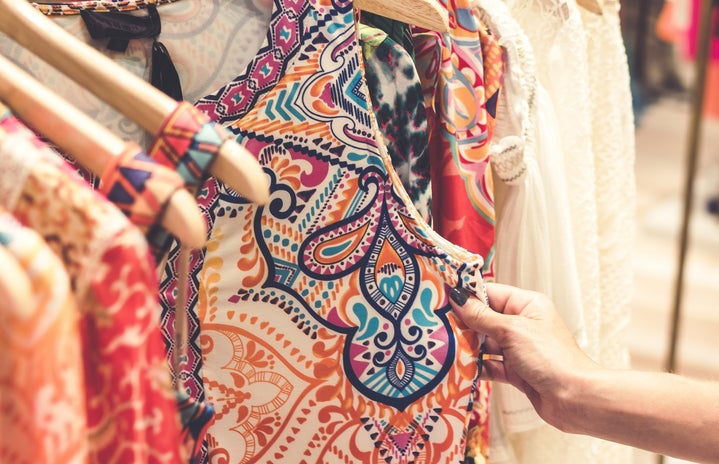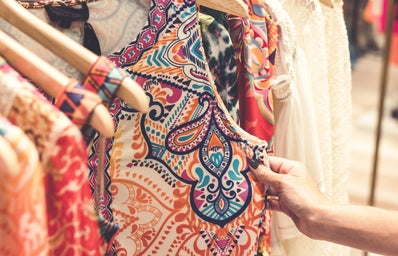When COVID-19 felt like it was oceans away, life continued at its usual rapid pace in the United States. Now, more than 1 billion people are under lockdown orders, and life as we know it is nothing more than a memory.
One of the many industries heavily impacted by the lockdowns has been the fashion industry. With the first signs of danger showing back when Milan closed down its shops and the usual bustle of people during Fashion Week disappeared, people inside the industry began to worry about it grinding to a halt.
In recent years, waste and pollution problems around the world have been uncovered to show the enormous impact of microplastics and synthetic textiles on our oceans. With the world coming to a stop due to COVID-19, many businesses are turning inward to figure out how to survive a time where consumerism is taking a backseat for the first time.
One of the biggest problems facing the industry is the supply chain process. It’s placing factory workers at the receiving end of a failing system, which is designed to leave them vulnerable in times of crises. Brands pay their factories after delivery, and not when placing the order. This has left millions of workers out of jobs and factories disposing of the textiles and clothes already made for this upcoming year.
The loopholes in this fragmented system have allowed brands to refuse to pay for orders, letting factories close and pushing garment workers into poverty. In the U.S., many garment workers are not eligible for unemployment benefits due to the hidden and sometimes exploitative nature of the fast fashion industries.
Organizations like Fashion Revolution are already calling for a rerouting and rewriting of fashion standards to protect workers and everyone under the umbrella of people that allow our clothes to reach stores and our front doors. With mounting pressure from the public, brands like Primark, H&M and Target have announced they intend to pay for orders, but with no transparency in sight, it’s still unclear where workers fall in their plans during this time.
For brands, this is the time to rethink a model that has led to overproduction and overstock. With the fashion industry producing 10% of the world’s carbon emissions, it’s become clear fast fashion is a convenient but disastrous method to create new clothes and products that come at a great price to humanity.
Overstock has become a problem since consumer demand has greatly declined due to lockdown orders and millions of people becoming unemployed. Brands like GANNI have released plans to stop overproduction of samples and take advantage of their digital platforms in hopes of reducing overstock after the pandemic.
Social media has caught on to the speed at which brands make copycat designs and release them into the mass days after, with FashionNova being one of the main culprits. It is now under investigation for wage theft– leaving workers to earn less than $3/hr.
It’s become clear that this is a necessary moment to reset the industry and head towards a smarter model where resources are used and not wasted and workers are paid and not exploited.
For consumers, this has become a wake up call to the vulnerability of systems that have been propped up on the backs of exploitation and abuse of our natural resources. Now is the time to make a more conscious switch to sustainable clothing which had already been on the rise before the crisis but could now be the leading force to save an industry on the brink of failure.
In a recent poll surveying 6000 consumers in the UK, 16% said they would buy more sustainable clothing after the pandemic. There are already organizations set up to donate to workers affected by this crisis like the AWAJ Foundation and the Garment Worker Centre.
While this wake-up call has left millions of people unemployed, it’s up to us to not only help and raise awareness for the people that have been silenced, but to make sure future generations don’t witness the same downfall.


